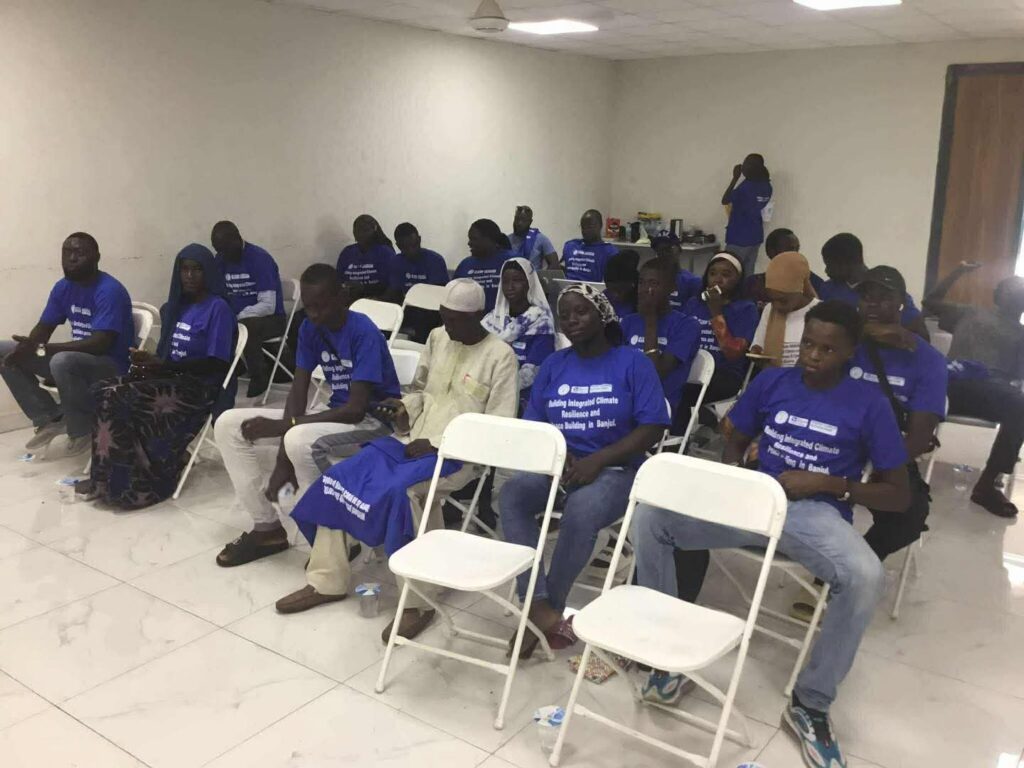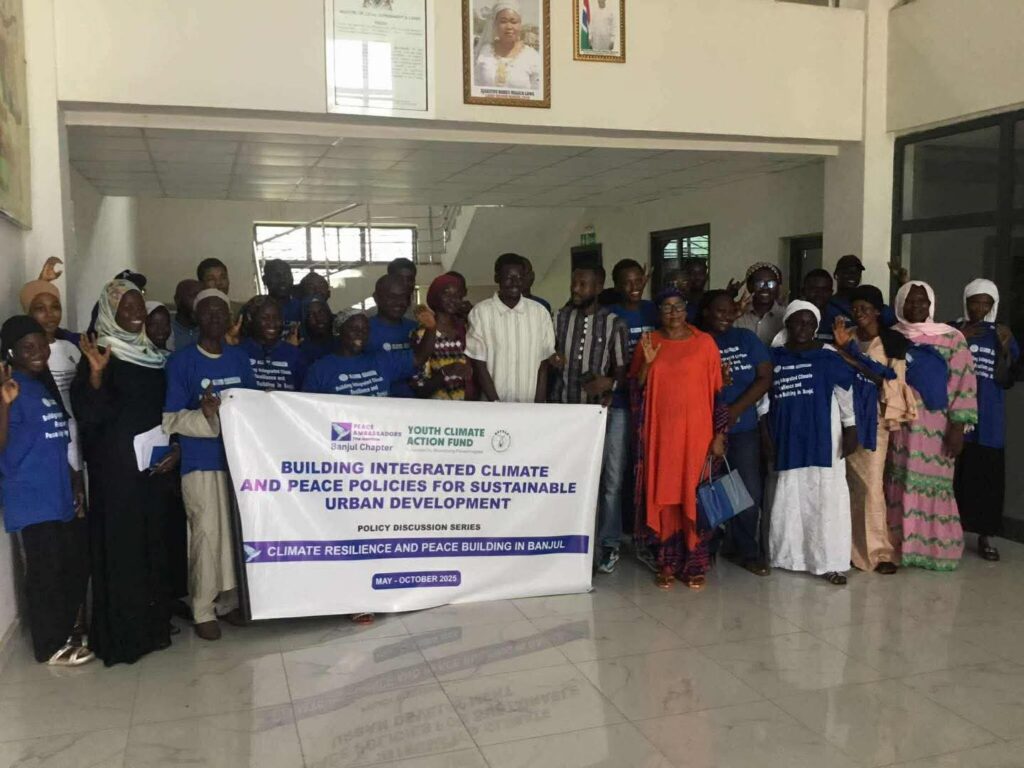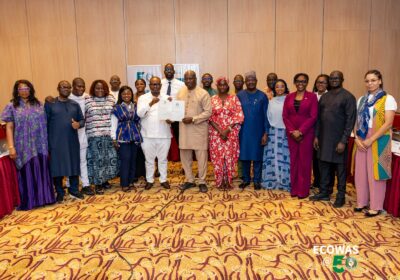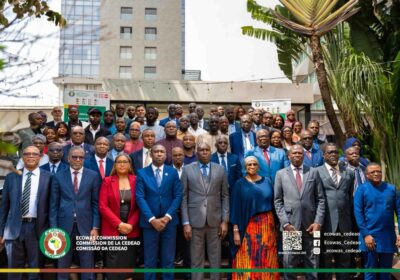Environmental Sustainability: Stakeholders Demand Urgent Action on Climate and Peace as Coastal Erosion Mounts.
By Raymond Enoch
In a bit to raise awareness and urge policy makers to take action, a gathering of national leaders, climate experts, and peace advocates, Banjul was urged to act decisively to confront the twin crises of climate change and social instability. The call came during a high-level meeting on Saturday, September 13, 2025, hosted at the Banjul City Council under the theme: “Building Integrated Climate and Peace Policies for Sustainable Urban Development.”

Organized by the Youth Climate Action Fund in collaboration with cross-sectoral stakeholders, the event spotlighted the urgent need for climate resilience and peacebuilding in Gambia’s capital, one of West Africa’s most climate-vulnerable cities.
“Soon there will be no more James Island,” warned Lamin Samateh of the National Environment Agency (NEA), citing rapidly worsening coastal erosion. “The same scenario is threatening Banjul. Every year, parts of that land are disappearing.” He further stressed that climate change knows no boundaries, adding, “When it strikes, it affects everyone.”

Project lead Awa Jallow opened the forum by underscoring the initiative’s mission: “As peace ambassadors, our vision is to promote peace, stability, and sustainable development.” She emphasized the importance of empowering youth and local communities as agents of change.
Peace advocate Yankuba Manjang, from Peace Ambassadors – The Gambia, echoed this call, stating: “These are the communities most in need of peace and climate resilience efforts.” He urged stakeholders to prioritize disaster-affected neighborhoods in Banjul, many of which are grappling with both environmental degradation and economic hardship.
Parliamentarians Hon. Abdoulie Njie and Hon. Momodou Lamin Bah lent their voices in solidarity, pledging strong backing for any policy initiative rooted in the outcomes of the meeting. “When these policies reach parliament, we will stand firm in support,” they affirmed.
The forum concluded with a united commitment to elevate youth participation, advocate for peace, and take bold steps to protect Banjul from escalating climate threats.
As the tides rise—both literally and politically—Banjul stands at a critical crossroads. Stakeholders now face the challenge of translating dialogue into action before the city’s disappearing coastline becomes a symbol of irreversible loss.









